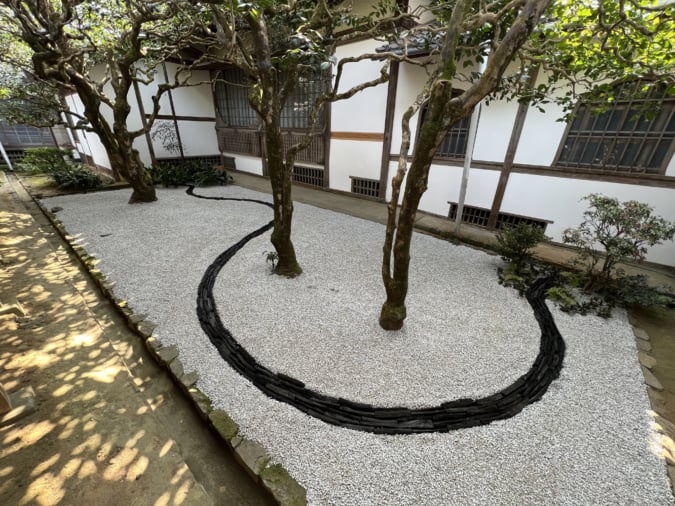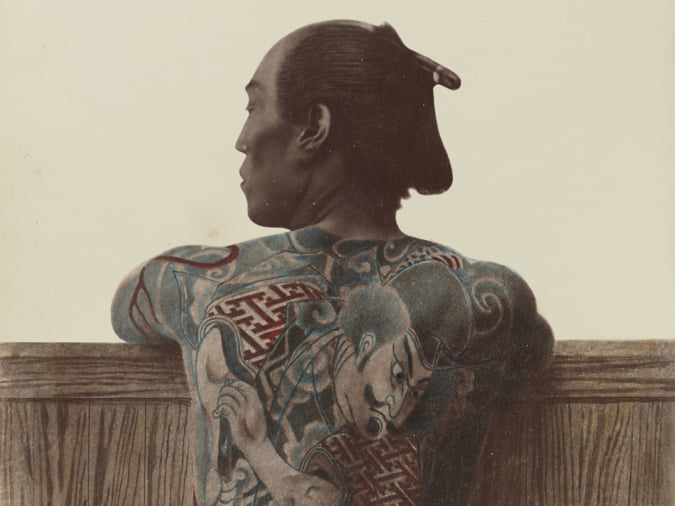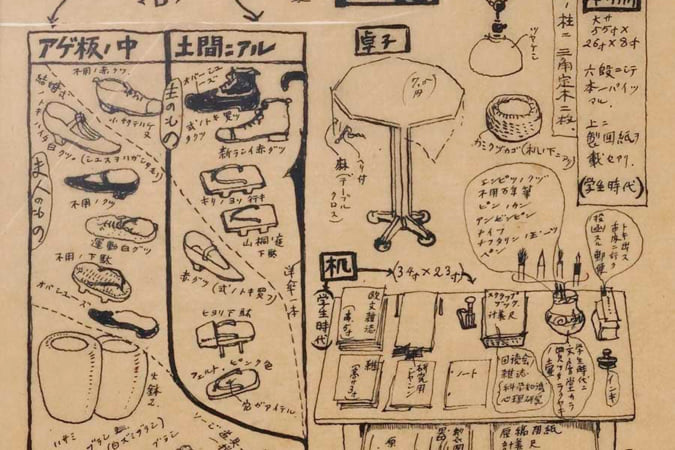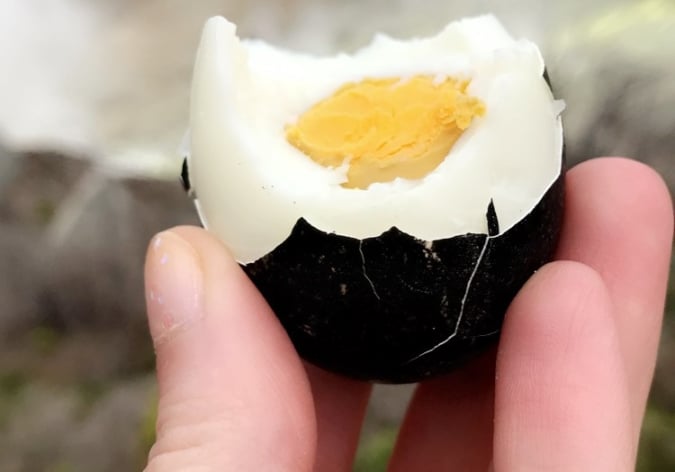Japan’s Dazzling Beauty Transposed into Paintings by Alice Tye
The London-based painter travelled to Japan in spring 2017. On her return to England, she turned her memories into paintings.
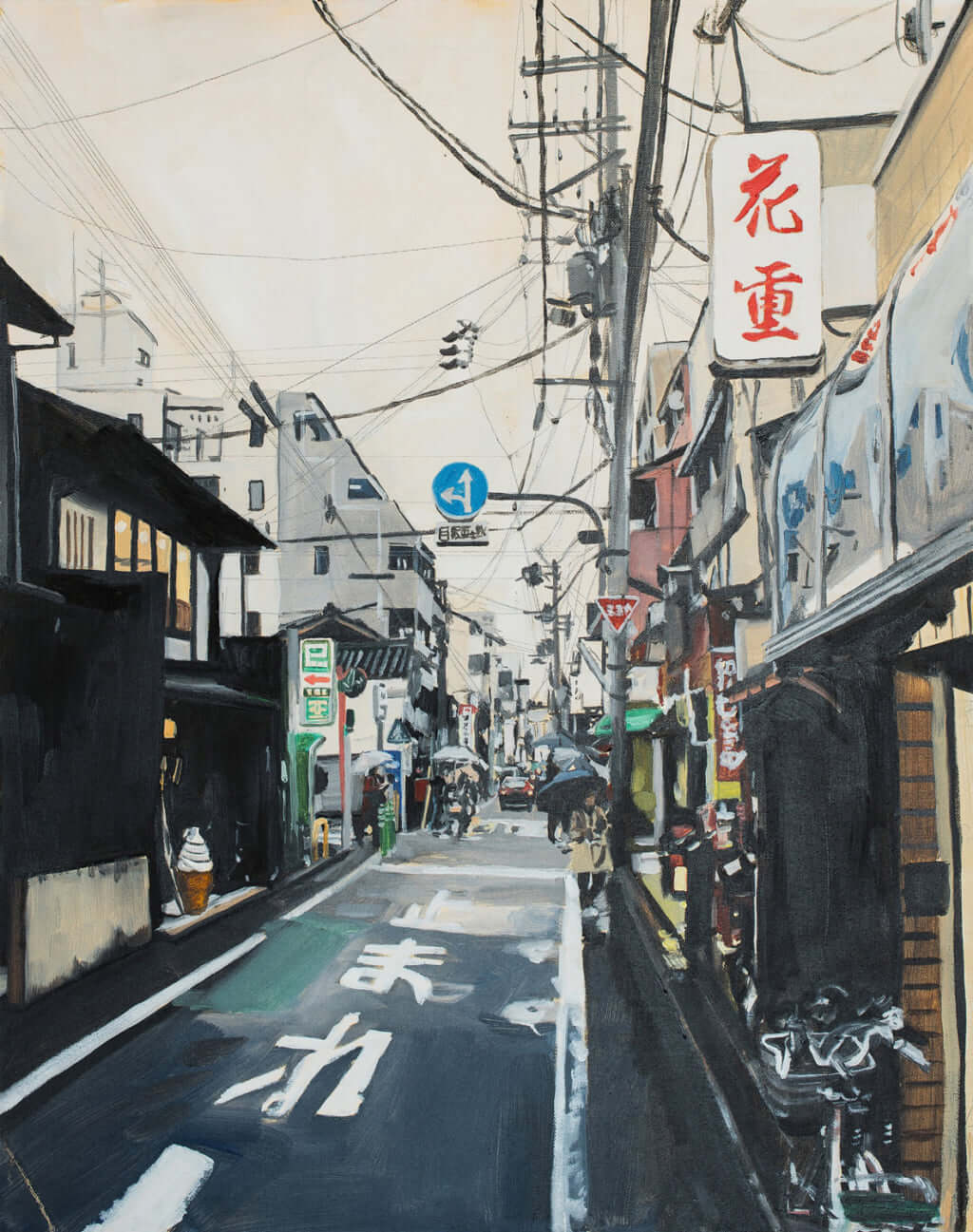
© Alice Tye
Tokyo, Kyoto, Osaka, Naoshima, Koyasan, and the Kiso Valley: Alice Tye travelled the length and breadth of Japan on what was her very first trip to Asia. Enchanted in equal measure by the sakura, narrow city streets, car parks, and gaudy, neon signs lit up at night, the painter sought to immortalise her discoveries of big cities and quieter panoramas in the Japanese countryside. Armed with only a camera, she collected photos and videos much like any other tourist, before transforming them into pieces of art on her return to London.
An ode to the ephemeral nature of things
In the peace and quiet of her studio, she immersed herself in these documents once more and relived all the emotions she had felt so keenly over those three weeks. This made her want to find the most fitting way to transcribe all of her fortuitous encounters and discoveries, like a side street in Kyoto at the end of a long market day, or the view from the Momosuke bridge whilst waiting for a train. ‘My whole experience travelling around Japan, which admittedly only just scratched the surface of all of the places I could have visited in the country, was overwhelming and a huge culture shock in the best way possible’, she reveals in an interview with online magazine It’s Nice That.
Her series of paintings Mono No Aware, meaning ‘the pathos of things’, is an ode to this Japanese expression that symbolises ephemerality and nostalgia, like the brief blossoming of sakura in Japan that heralds the arrival of spring.
Mono No Aware (2017), a series of paintings and photographs by Alice Tye, can be found on the artist’s website.
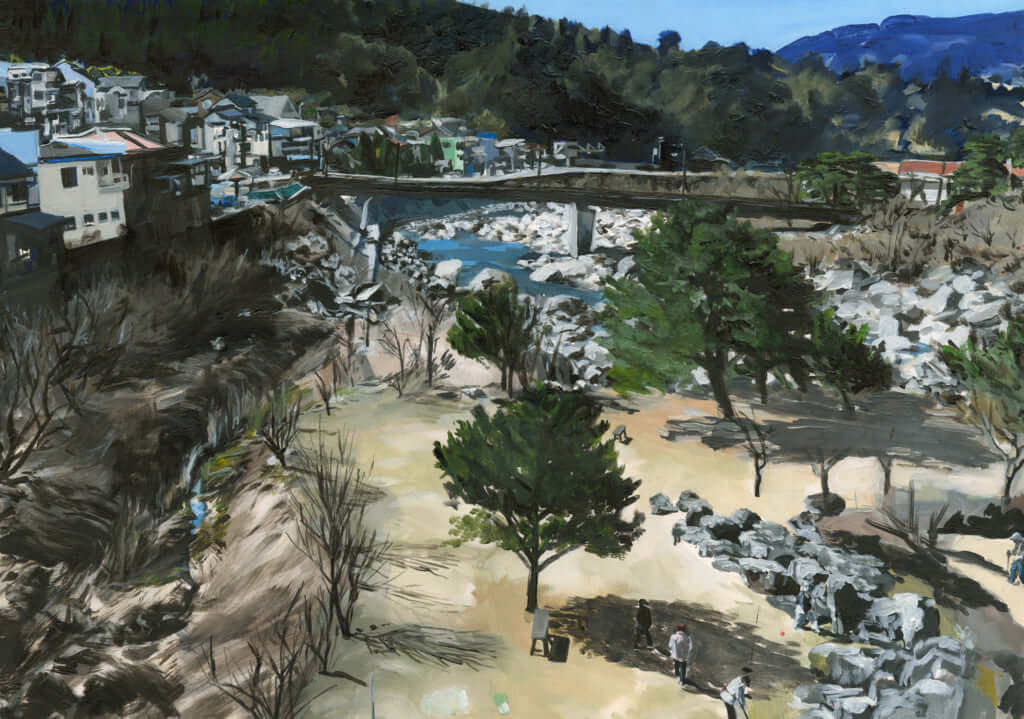
© Alice Tye
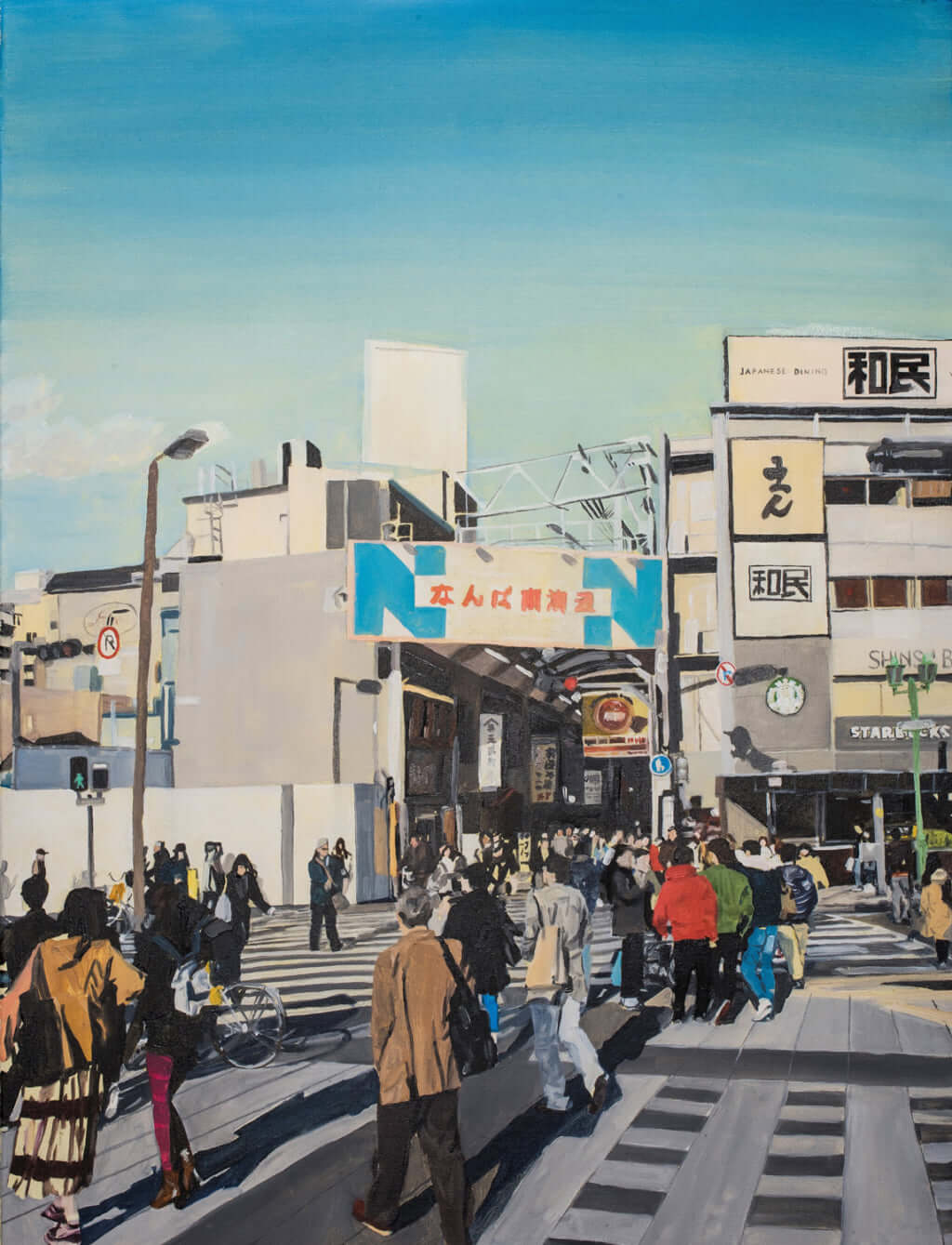
© Alice Tye
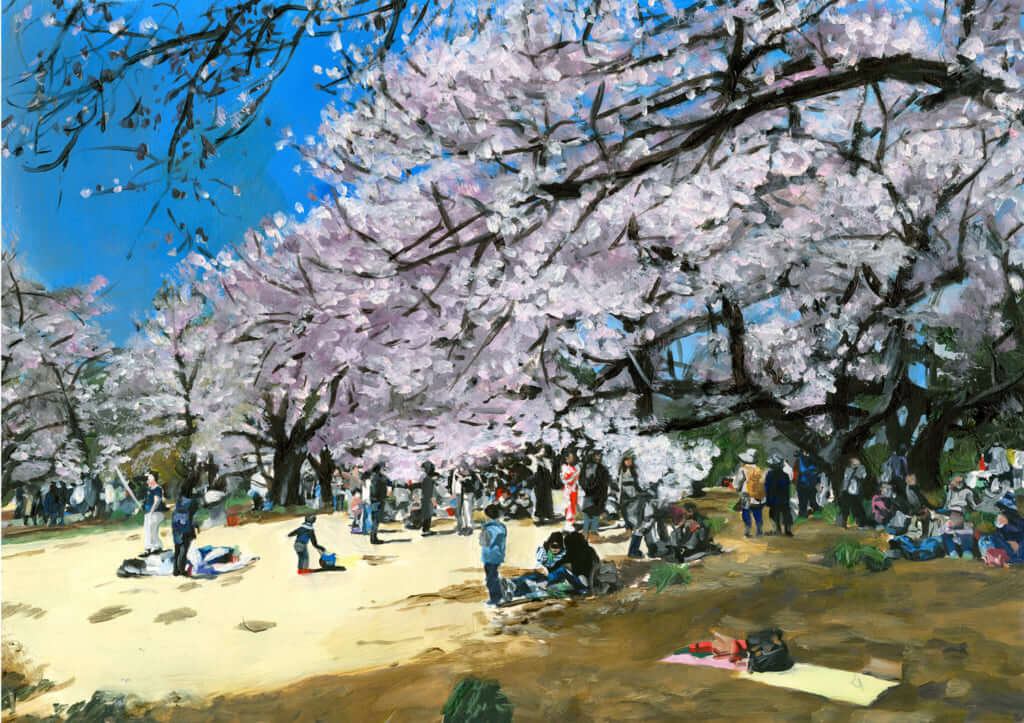
© Alice Tye
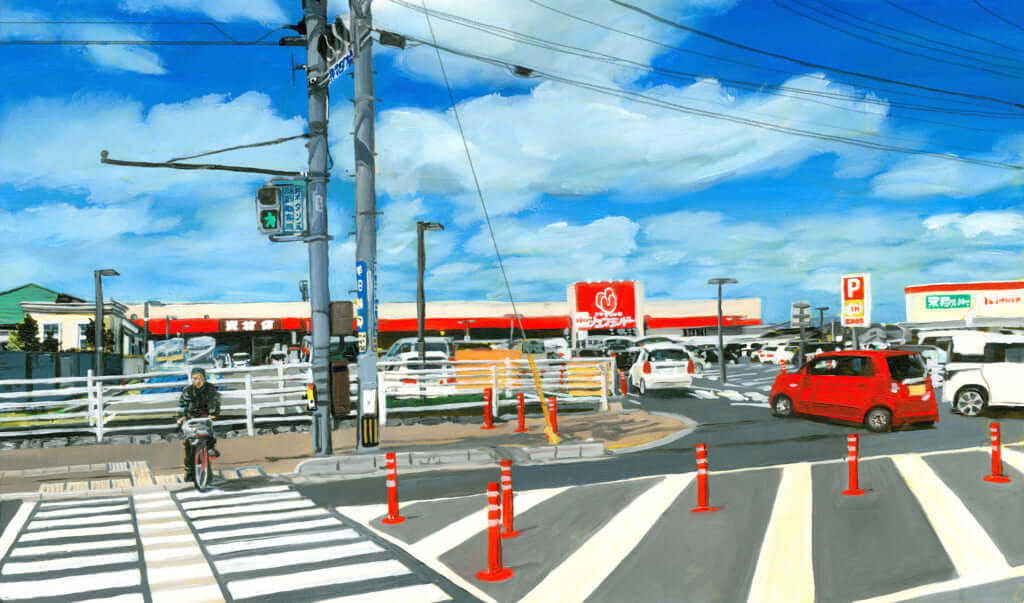
© Alice Tye
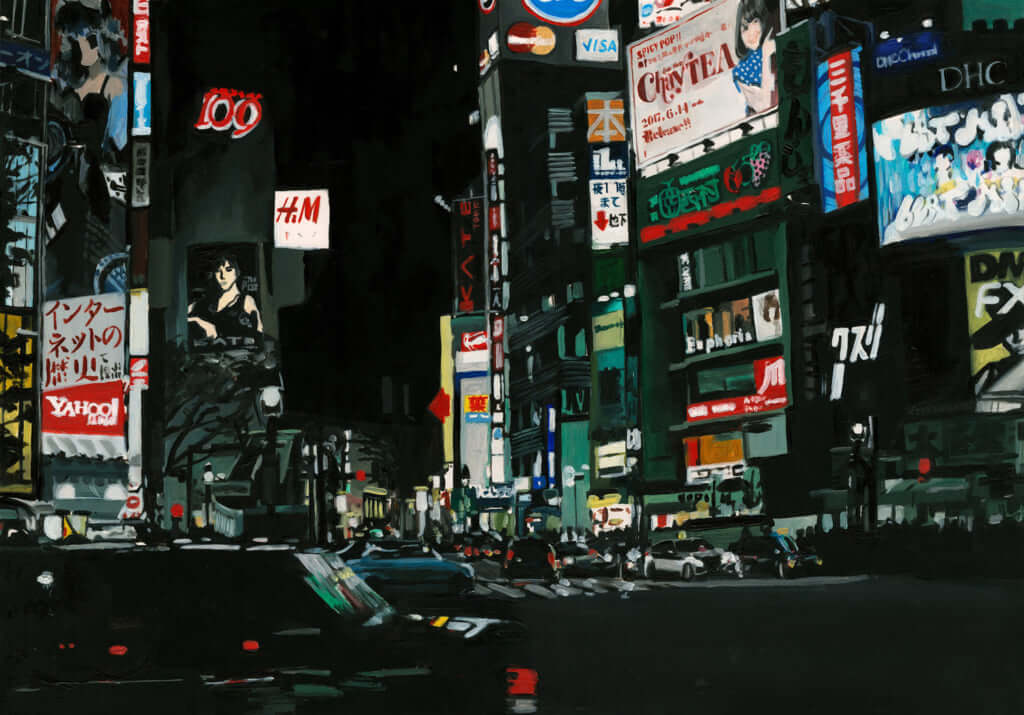
© Alice Tye
TRENDING
-
A Rare Japanese Garden Hidden Within Honen-in Temple in Kyoto
Visible only twice a year, ‘Empty River’, designed by landscape architect Marc Peter Keane, evokes the carbon cycle.

-
Colour Photos of Yakuza Tattoos from the Meiji Period
19th-century photographs have captured the usually hidden tattoos that covered the bodies of the members of Japanese organised crime gangs.

-
Recipe for Ichiraku Ramen from ‘Naruto’ by Danielle Baghernejad
Taken from the popular manga with the character of the same name who loves ramen, this dish is named after the hero's favourite restaurant.

-
Modernology, Kon Wajiro's Science of Everyday Observation
Makeup, beard shape, organisation of cupboards and meeting places: all of these details decipher 1920s Tokyoites.

-
The Tradition of the Black Eggs of Mount Hakone
In the volcanic valley of Owakudani, curious looking black eggs with beneficial properties are cooked in the sulphurous waters.

